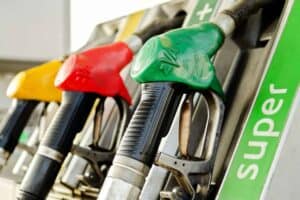The South African National Petroleum Company (SANPC) was launched to try to secure South Africa’s energy security.

In the 2013 Norwegian winter, I still felt like having a crisp, fresh beer. At about an equivalent of R100 a can, I still wanted that beer. When I found out why it was so pricey, I wanted that beer even more.
It took a while to put the obvious together, but after realising that every bottle store was called Vinmonopolet, it wasn’t long before learning that the Norwegian government has a monopoly on selling booze from a shop. It turns out that there’s hardly a reason to bother with the sin tax in Norway.
Never mind nationalising banks and mines. Imagine the outrage if South Africa nationalised the breweries and failed to deliver the beer. And you cannot make a delivery without the fuel, now, can you? So, a good step will be taking over the petrol.
Since we’ve already seen that the state has not been fantastic at running entities, it’s something of a relief to learn that this plan to start selling petrol at the pumps is not going to shut down the private sector, but it’s also great to know that more money we spend on petrol will be staying in the country.
That’s the right direction. You can moan about foreign entities doing things in the homeland, but until you do something about it, Shell will Shell. So let’s have more local companies competing to sell us petrol.
ALSO READ: National Petroleum Company’s bold plan to secure SA’s energy security
But there’s a lesson here. While we might not have our own car brand of any renown, battery developer, or hardware chip manufacturer, we’ve actually done a great job of keeping what we have in-house. Our top banks are South African, as are our major broadcasters. A bulk of our top retailers do their thing from our shores, and those with overseas bosses tend to be doing it better here than there.
We’ve actually been able to do a lot of good things for ourselves down here. When we’ve failed, for a big part, it’s been because of a single entity or shareholder… the state. But business can work here, so if the state wants to try its hand at filling the gaps left by a fleeing multinational, there’s little reason why it shouldn’t work outside the governance being bad.
Naturally, there’ll be a temptation to say, ‘goodie gumdrops, another state entity for us to bail out’ , but this is the exciting bit. It’s too easy to think they’ll get bailed out because bailouts don’t just happen. When was the last time you noticed a state entity that didn’t hold a monopoly get a bailout?
You don’t even remember SA Express — because we had private airlines that could do a better job, there was no way the state could justify throwing money at them. It’s not the same as Eskom, which needs to keep the lights on.
That’s why the postal service is panicking because couriers are doing their jobs way better and their continued existence may not justify another bailout.
If whatever they call this new local petrol shop is going to fail, it’s not going to do it off of our dime. This is one of the few situations where we have little to lose in the game, so best believe it’s time to enjoy it.
If the state can make more of its own money and provide less risk to the populace, that’s fantastic. If it can enter a profitable and worthy market that we’d need anyway and plug money from leaking overseas, all the better.
What’s exciting about this is that they can try it in the knowledge that if they fail, it’s not like anybody is going to be waiting to write them a cheque because gone are those days.
NOW READ: Guess who’s woken up to the glory of nuclear energy?






